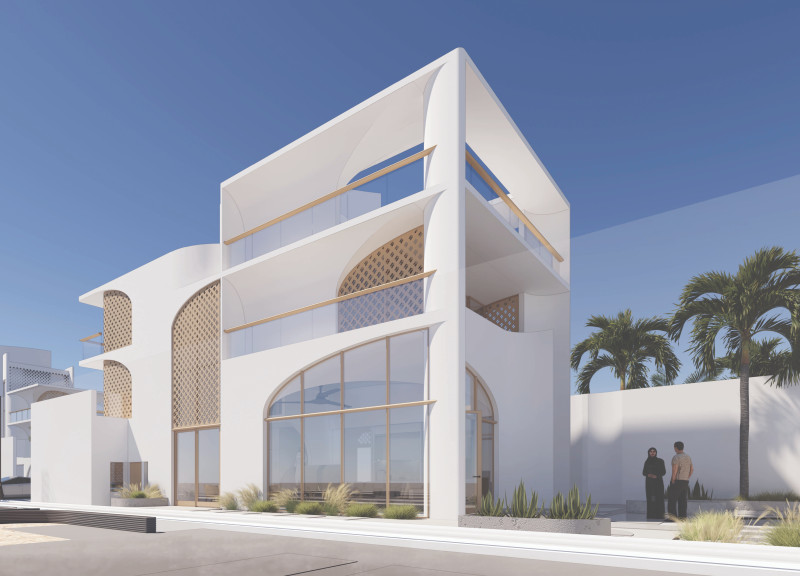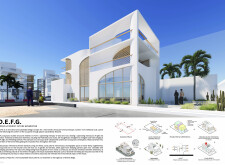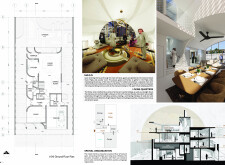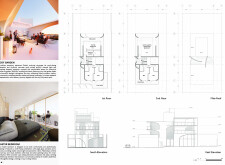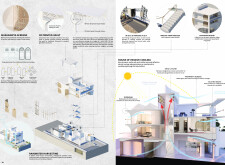5 key facts about this project
### Project Overview
Located in Dubai, the D.E.F.G. (Domus of Emirati Future Generation) project integrates sustainable architectural practices with traditional Emirati design principles. The intent is to create a residential prototype that responds to both the climatic conditions and cultural heritage of the region. This initiative seeks to balance contemporary living environments with the contextual nuances of Emirati identity, thereby establishing a coherent architectural language that addresses modern needs while honoring historical traditions.
### Spatial Strategy
The spatial organization of D.E.F.G. features a mixed-use layout conducive to family interaction and social engagement. The ground floor is designed with interconnected volumes that include a *majliss*, living areas, kitchen, and outdoor terraces, facilitating fluid movement among residents and visitors. The upper floor is dedicated to private quarters, prioritizing privacy and functionality for its occupants. Key spaces include the *majliss*, which serves as a communal gathering area to strengthen social ties, and an accessible roof garden that provides a multifunctional green space enhancing urban living.
### Materiality and Environmental Performance
D.E.F.G. employs a deliberate selection of materials, combining both traditional and contemporary elements to reflect sustainable design principles. Recycled concrete serves as a primary structural material, while 3D-printed elements reduce material waste and ease construction processes. Aluminum mashrabiya screens reinterpret traditional shading techniques, ensuring visual privacy and climate adaptability. The use of natural stone aids in thermal performance, contributing to the building's environmental efficiency.
Architectural features designed for passive cooling include aerodynamic vaults that facilitate airflow and promote comfort, and wind catchers that enhance natural ventilation. The strategic integration of roof-mounted solar panels supports energy sustainability and emphasizes the project's commitment to environmentally responsible architecture.


